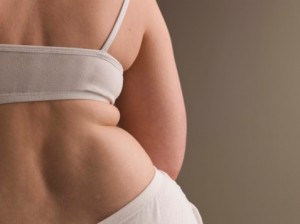July 11th, 2012 by Dr. Val Jones in News, Opinion
2 Comments »
 American Medical News drew my attention to a recent study published in the International Journal of Eating Disorders. Among the surprising findings, 62% of women surveyed (all over the age of 50) said that their weight or shape negatively impacted their life, and 13.3% had eating disorders. About 7.5% of respondents admitted to trying diet pills to lose weight, while 2.2% used laxatives, and 1.2% vomited to reduce their weight (aka bulimia).
American Medical News drew my attention to a recent study published in the International Journal of Eating Disorders. Among the surprising findings, 62% of women surveyed (all over the age of 50) said that their weight or shape negatively impacted their life, and 13.3% had eating disorders. About 7.5% of respondents admitted to trying diet pills to lose weight, while 2.2% used laxatives, and 1.2% vomited to reduce their weight (aka bulimia).
Eating disorder treatment facilities have noticed a surge in older patients, including one center that experienced a 42% increase in the number of women older than 35 seeking treatment at its clinics nationwide over the past decade.
Healthcare providers should be aware that eating disorders are not just a problem for young women. Women of all ages are now struggling with a rail-thin beauty ideal in a country of rising obesity rates, sedentary lifestyles, and ubiquitous junk food. And for older women with eating disorders, the health risks of osteoporosis, stomach ulcers, and cardiovascular abnormalities are much higher.
Perhaps primary care physicians should include an eating disorder questionnaire in their regular visits with boomers? We may be surprised by the prevalence of this issue, and I bet that many of our patients will be glad we asked.
December 7th, 2010 by Peggy Polaneczky, M.D. in Better Health Network, Health Tips, News, Opinion, Research
1 Comment »

Not as often as you think, even though Medicare may be willing to pay for it every two years. Via Science Daily:
Now a new study led by Margaret L. Gourlay, MD, MPH of the University of North Carolina at Chapel Hill School of Medicine finds that women aged 67 years and older with normal bone mineral density scores may not need screening again for 10 years.
“If a woman’s bone density at age 67 is very good, then she doesn’t need to be re-screened in two years or three years, because we’re not likely to see much change,” Gourlay said. “Our study found it would take about 16 years for 10 percent of women in the highest bone density ranges to develop osteoporosis. That was longer than we expected, and it’s great news for this group of women,” Gourlay said.
The researchers suggest that for T scores > -1.5, repeat testing needn’t be done for 10 years. Women with T scores between -1.5 and -2.0 can be re-screened in 5 years, and those with T scores below -2.0 can have every other year testing as is done now.
To be honest, I’ve been spacing out bone density testing in woman with good baseline scores for some time, but not knowing how long I can go. This is great information for me and for my patients.
*This blog post was originally published at tbtam*
June 26th, 2010 by Toni Brayer, M.D. in Better Health Network, Health Tips, News, Research
2 Comments »

Talk about a cruel trick of nature! A study funded by the National Institutes of Health (NIH) and published in the Journal of the American Medical Association (JAMA) shows that physical activity prevents weight gain in middle-aged and older women ONLY IF THEY ARE ALREADY AT IDEAL WEIGHT. Did you read that? It means that the recommended guidelines advocating 150 minutes of exercise a week isn’t sufficient to prevent weight gain in most middle-aged women.
The Harvard-associated researchers assessed weight changes associated with various levels of physical activity on 34,079 women who had been followed since 1992 in the Women’s Health Study. They stratified women as “inactive” (less than 150 minutes a week of moderate level physical activity), “intermediately active,” or “highly active” if they performed a high, strenuous level of activity. All three groups showed similar weight gain over a mean of 13 years of follow up. Read more »
*This blog post was originally published at EverythingHealth*
 American Medical News drew my attention to a recent study published in the International Journal of Eating Disorders. Among the surprising findings, 62% of women surveyed (all over the age of 50) said that their weight or shape negatively impacted their life, and 13.3% had eating disorders. About 7.5% of respondents admitted to trying diet pills to lose weight, while 2.2% used laxatives, and 1.2% vomited to reduce their weight (aka bulimia).
American Medical News drew my attention to a recent study published in the International Journal of Eating Disorders. Among the surprising findings, 62% of women surveyed (all over the age of 50) said that their weight or shape negatively impacted their life, and 13.3% had eating disorders. About 7.5% of respondents admitted to trying diet pills to lose weight, while 2.2% used laxatives, and 1.2% vomited to reduce their weight (aka bulimia).











